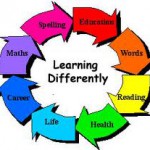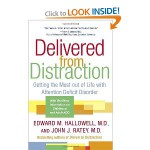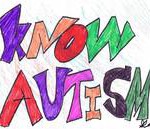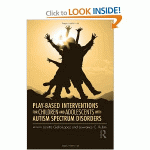
More and more in our society, any kind of testing that compares people with each other is viewed negatively. Different kinds of testing: No Child Left Behind, End of Year testing, and Intelligence Testing are all types of testing that come under criticism. Here is a different spin on the kinds of tests given by […]
By:
William Van Ornum, Ph.D.

Word from ABILITIES FIRST in Poughkeepsie, NY October 5, 2012, Poughkeepsie, NY—As Dr. Lori Crispi’s term on the board of Abilities First, Inc., a Dutchess County based nonprofit that serves children and adults with disabilities, was coming to an end, she felt that she couldn’t just walk away. “I enjoyed being part of the organization […]
By:
William Van Ornum, Ph.D.

Previously I’ve written about Recovery International, founded by psychiatrist Abraham Low in the 1940s in Chicago, Illinois. Dr. Low initiated a revolutionary brand of treatment that we now call cognitive therapy: by changing one’s thoughts, one could change troublesome feelings and through practice attain better mental health. Dr. Low used the word apprenticeship to denote […]
By:
William Van Ornum, Ph.D.

Two important areas in mental health are prevention and resiliency. Prevention includes all efforts to prevent a person from developing a mental-health problem. One of the most effective prevention programs has been Head Start—from the 1960s, these centers have been a path for positive adjustment for many young persons of disadvantaged backgrounds. Another prevention program […]
By:
William Van Ornum, Ph.D.

Successes of all kinds—academic, vocational, monetary, and material—are highly valued and obsessively pursued. But even those who “have it all” may find themselves spiritually adrift and existentially empty. Paul Wright, M.D., a cardiologist, found himself in this position after having made it to the top in a demanding medical specialty. On November 9, 2012, I […]
By:
William Van Ornum, Ph.D.

Timothy Schriver, writing in the Huffington Post (Oct. 27, 2012), forwards to writer Ann Coulter a letter from a young man with Down syndrome. Recently Ms. Coulter used the “R” word while criticizing the President of the United States: “Dear Ann Coulter, “Come on Ms. Coulter, you aren’t dumb and you aren’t shallow. So why […]
By:
William Van Ornum, Ph.D.

Paul Gionfriddo, formerly a state legislator in Connecticut, writes about his son, who showed signs of schizophrenia when very young and whose life has been ravaged by the disease. (Article, My Son Is Schizophrenic—the Reforms I Worked for Have Worsened His Life in the October 15, 2012, edition of the
By:
William Van Ornum, Ph.D.

Public Law 94-142, passed by the Congress in 1976, and following legislation including Individual Education Disabilities Act (IDEA), defined different handicapping conditions for which a child could receive additional support (and therefore additional funding) in the public school system. A continuum of extra supports was initiated. This could range from being in a smaller class […]
By:
William Van Ornum, Ph.D.
The AMHF grant to Astor Services for Children—to identify and evaluate interventions that help adolescents at risk for suicide and psychosis, and to create scientifically supported guidelines—supports the exact kind of empirical investigation recommended by American Psychological Association President Suzanne Bennett Johnson. In the President’s Column of the July August 2012 APA Monitor (American Psychological […]
By:
William Van Ornum, Ph.D.

Edward Hallowell and John Ratey have published a follow-up to their successful book Driven to Distraction. On a hopeful note, it is titled Delivered from Distraction. The first book was written in the 1990s. It contains much good advice on ADHD: diagnosis, medications, telling it apart from other conditions as well as finding it in […]
By:
William Van Ornum, Ph.D.

Although the education of children and teens with autism is covered both in Public Law 94-142 and Individuals with Disabilities Education Act (IDEA), even with these supports some parents and advocates worried that the intense needs of those with autism were not being fully addressed. This led to the passage of PL 109-416. This act: […]
By:
William Van Ornum, Ph.D.

Big Brothers Big Sisters is a national organization which matches volunteers to children who could use a supportive adult in their life. Children in foster care, in single parent families, children with an incapacitating illness–are the kinds of youngsters who might be given priority status. The sponsoring agency has been known to do a careful […]
By:
William Van Ornum, Ph.D.

Decades ago I was a pre-doctoral intern in clinical psychology and was assigned a therapy case of a young man who would probably now be considered to be experiencing an autism spectrum disorder. He was extremely guarded, withdrawn, and tactile defensive (not liking to touch objects in his environment). Three times each week we met […]
By:
William Van Ornum, Ph.D.

When I worked in the Astor Day Treatment Program many years ago, our program shared a large inner-city school building with a Head Start Program. It was heartwarming to see young children learning the skills and developing the kinds of relationships that would lead to later success in life. Many didn’t get proper nutrition and […]
By:
William Van Ornum, Ph.D.

Here are some new books on counseling by members of the American Counseling Association, as described in the February 2012 edition of Counseling Today: Married to the Enemy: A Guide to Overcoming the Obstacles to Intimacy When We are Raised in a Culture that Uses Stereotyping and Sexism to Divide Us By Dawn Kozarian and […]
By:
William Van Ornum, Ph.D.

This is the fifth of twenty-one films in the AMHF series of blogs. Charly is a controversial film, about mental retardation and psychiatry. The central controversy revolves around the question, “What is a human being?” Are individuals challenged by developmental delays “to be cured?” Are they not soulful, “whole individuals”? What would be the role […]
By:
Evander Lomke

The Individuals with Disabilities Act (IDEA) lists conditions present in a child that can qualify him or her for special services in the educational system in preschool. These are: *Chromosomal Abnormalities (e.g., Down syndrome) *Syndromes (e.g., fetal alcohol syndrome) *Neuromuscular Disorder (e.g., cerebral palsy, spina bifida) *Central nervous system (CNS) abnormality (e.g., caused by bacterial/viral […]
By:
William Van Ornum, Ph.D.

There are occasions when a child will need to be tested—not by a school or clinical psychologist, but by a neuropsychologist. This occurs when a child displays a brain-based disorder, which can mean an entire spectrum of disorders. Learning disabilities, developmental disabilities, head injuries, cancer, and even gunshot wounds are among the kind of problems […]
By:
William Van Ornum, Ph.D.

Many people still have the idea that psychological testing is mostly practiced in clinics and hospitals, and have images of psychologists sitting with clipboards giving Rorschach Inkblot tests and intelligence tests. In actuality, most psychological testing is now done in schools, and it has a preventive function: to identify mental retardation, learning disabilities, emotional disorders, […]
By:
William Van Ornum, Ph.D.
The American Psychological Association has announced, in the January 2012 issue of American Psychologist, “Guidelines for Assessment of and Intervention With Persons of Disabilities.” This document lists twenty-two practice-guidelines for psychologists who work with persons displaying disabilities of various kinds. The task force for this report was chaired by Kurt F. Geisinger of the University […]
By:
William Van Ornum, Ph.D.
Elaine Aron pioneered new ground over a decade ago when she wrote the trade book The Highly Sensitive Person; this was followed up by a workbook, a book on parenting children who are highly sensitive, and even a primer for therapists. Highly Sensitive Persons (HSP), in her view (which incorporates findings from important developmental psychologists […]
By:
William Van Ornum, Ph.D.
Many remember Curt Schilling for his postseason successes with the Boston Red Sox, including one in which he pitched while in pain and with a bloodied sock. Schilling recently announced that he has formed his own video-game company, which will be releasing a fantasy-oriented game for gamers. The story behind the story here is that […]
By:
William Van Ornum, Ph.D.

In the recent yearly “Reports of the Association” issue of the American Psychologist (December 2011), the American Psychological Association announced “Practice Guidelines Regarding Psychologists’ Involvement in Pharmacological Issues.” This report notes several factors that will make psychologists more involved in medication-management issues. One survey noted that the number of Americans using antidepressants increased from 6.7 […]
By:
William Van Ornum, Ph.D.
From the Poughkeepsie Journal, January 12, 2012: “ALBANY. A federal report finds the Cuomo administration and previous administrations ran a system to care for the developmentally disabled that not only failed patients and had an alarming number of unexplained deaths, but also excluded public review and ideas that could have protected patients better. “The Department […]
By:
William Van Ornum, Ph.D.

Ann Carrns, writing in the January 11, 2012, New York Times, notes a new financial tool, one geared for families with individuals who have special needs: “Families with children who have special needs or disabilities face even bigger hurdles than most people when it comes to planning for their financial futures. Merrill Lynch Wealth Management […]
By:
William Van Ornum, Ph.D.
The December 22, 2011, edition of the New York Times brings out another article on the problems and abuses in New York State public groups homes where developmentally disabled persons reside. It is important to note that the focus of the NYT articles has been on “public” rather than private group homes. Many of the […]
By:
William Van Ornum, Ph.D.

Hudson River Psychiatric Center was a massive development built in the 19th century in Poughkeepsie, New York. The solid-brick buildings, many with iron window bars to prevent escapes, formed a city unto itslef, with capacity being over 5,000 patients who required hospitalization from illnesses we now term schizophrenia, bipolar disorder, psychotic depression, late-stage alcohol and […]
By:
William Van Ornum, Ph.D.

This past week the Order of Malta (Sovereign Military Order of St. John of Jerusalem of Rhodes and of Malta) met in New York City. This is a lay religious order of the Roman Catholic Church whose members are dedicated to serving the poor and the sick. They represent a 900-year-old history of helping the […]
By:
William Van Ornum, Ph.D.
November is National Epilepsy Awareness Month. I want to take a few words to reflect on this baffling, often-misunderstood condition, especially within the mental-health profession. Epilepsy has been known since ancient times. In the New Testament, Jesus cures an epileptic, recommending fasting and prayer. Such might be the genesis of the ketogenic diet, developed since […]
By:
Evander Lomke
From the 14th edition of Abnormal Psychology by James N. Butcher, Susan Mineka, and Jill M. Hooley (Boston: Allyn and Bacon): “The concept of mental disorder, as we have seen, suffers from the lack of a truly objective means of what is disordered and what is not. It is also in the financial interests of […]
By:
William Van Ornum, Ph.D.
« Previous
1
2
3
4
Next »






























 Host Companion
Host Companion